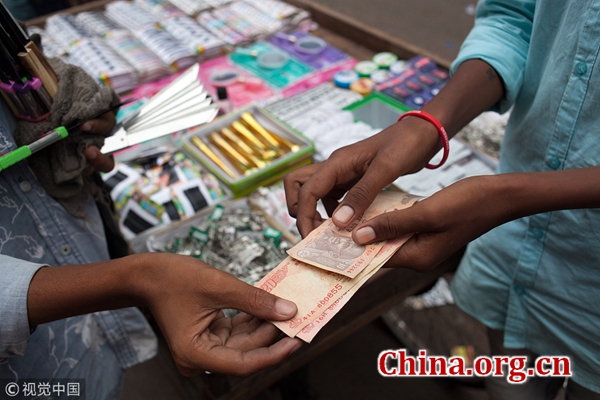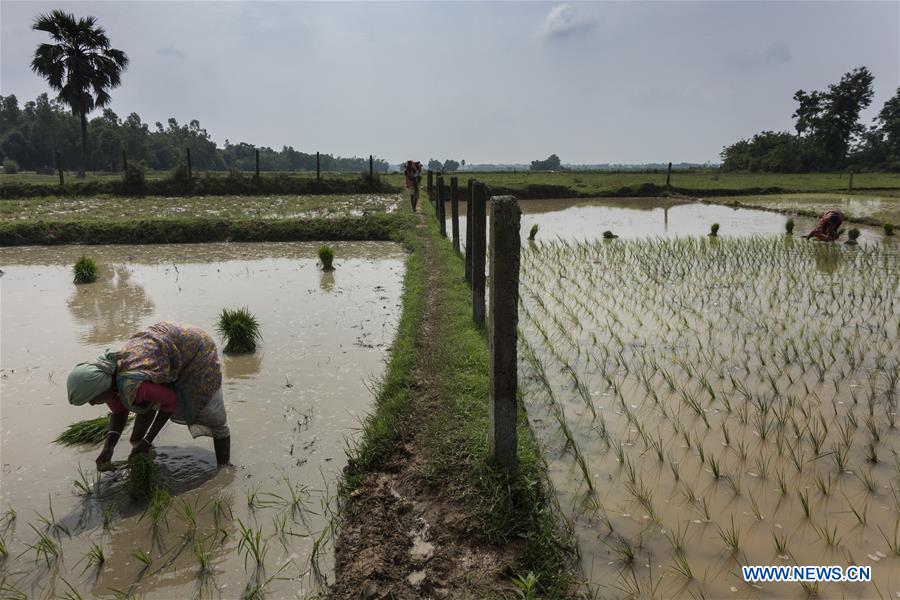India's flirts with universal basic income scheme
- By Niranjan Sahoo
 0 Comment(s)
0 Comment(s) Print
Print E-mail China.org.cn, January 28, 2019
E-mail China.org.cn, January 28, 2019

For some time, the idea of universal basic income (UBI) has gripped the icons of Silicon Valley and social democrats of Western Europe. Fed up with the perceived ineffectiveness of traditional anti-poverty schemes, wasteful subsidies and incompetent welfare bureaucracies, many economists believe UBI is the way to address the frequent income shocks, job losses and other periodic challenges.
Some countries in Western Europe and North America are currently piloting the concept. For instance, Finland and Netherlands are covering unemployed individuals with a monthly transfer. Recently, the Canada government announced a similar experiment in certain regions facing economic shocks, and many American states are vigorously debating the idea.
UBI is also gaining ground among economists from the Global South. It's certainly popular in India, the country being to launch Aadhaar (biometric ID system) for direct benefit transfers and income transfer trials.
The concept found a prominent place in the Union Finance Ministry's Economic Survey 2016-17 that made a strong case for transferring benefits directly into Aadhaar-linked accounts of specific individuals.
UBI reflects an unconditional and universal right for a basic income to meet individual needs. As currently understood, it has three core features: universality, unconditionally and agency. Its proponents argue that poverty and vulnerability of the poor, such as farmers, informal laborers or low-skilled workers can be addressed by transferring a guaranteed minimum income rather than through wasteful subsidies.
Proponents argue that, unlike in-kind transfers which treat recipients as "objects," unconditional cash transfers make them "agents," as it would entrust them with responsibility to spend their money more effectively. This is one way of passing the onus onto individuals rather than the state and its bureaucracy controlling such development processes which often produce bizarre outcomes.
Further, a basic and guaranteed income that covers everyone (thereby eliminating any possible errors of exclusion common in welfare programs) can act as a safety net against sudden loss of a job, income shocks and health issues that can overwhelm an unsecured citizen.
They further argue that limited unconditional cash transfers in countries like Zambia and Pakistan targeted at vulnerable groups have produced better development outcomes. The same can work in other economies, including advanced countries currently facing challenges such as rising unemployment due to automation.
Finally, UBI has transformative potential as it empowers individuals to spend money in ways they would like. Further, such income transfers enhance economic liberty at the individual level as it offers recipients a choice not to engage in unproductive work simply to meet their daily needs.
Yet, while it may appear a great idea to achieve equity and protect citizens from the vagaries of unemployment and indebtedness and similar conditions that can drive a person to extremes, the scheme has plenty of pitfalls. First and foremost is the fiscal capacity or the quantum of resources required to implement such a mega scheme.
Second, it would be politically infeasible to roll back existing welfare schemes for UBI especially in democratic politics, where it could create apolitical backlash. Further, considering the competitive politics in which political parties do everything to improve their electoral fortunes, there will be strong incentives for parties to raise UBI payments at the risk of fiscal imbalance.
Third, there is potential to create labor market distortions. Not only will free money make people lazy and dependent, such guaranteed income without any regular work affects labor mobility that can help push up wages.
Finally, as transfers are unconditional, it is extremely difficult to ensure additional income will be spent by recipients on health, education and other essential needs. As experience from other cash transfer programs show, it could go on alcohol, tobacco and other such conspicuous consumption.

However, although the jury is still out on the idea, it has gained considerable traction in India, where a persistent farm crisis and falling rural incomes has created a big market for UBI. While many back it to meet the needs of specific groups like farmers and informal sector workers, there are those who seek universal application.
It has gained much ground in recent months, especially after the southern state of Telangana introduced the "Rythu Bandu" scheme for its farmers in 2018. Many analysts believe this is why the Telangana Rashtra Samithi (TRS) party swept state legislative polls last month. This success of TRS is encouraging other states to produce their own version of UBI.
Recently, the eastern state of Odisha unveiled a new scheme called KALIA to provide income support for its farmers. With general elections only months away, a UBI scheme is under active consideration by the National Development Alliance government led by Prime Minister Narendra Modi as a potential vote winner.
Niranjan Sahoo is a senior fellow of the Observer Research Foundation, New Delhi.
Opinion articles reflect the views of their authors only, not necessarily those of China.org.cn.





